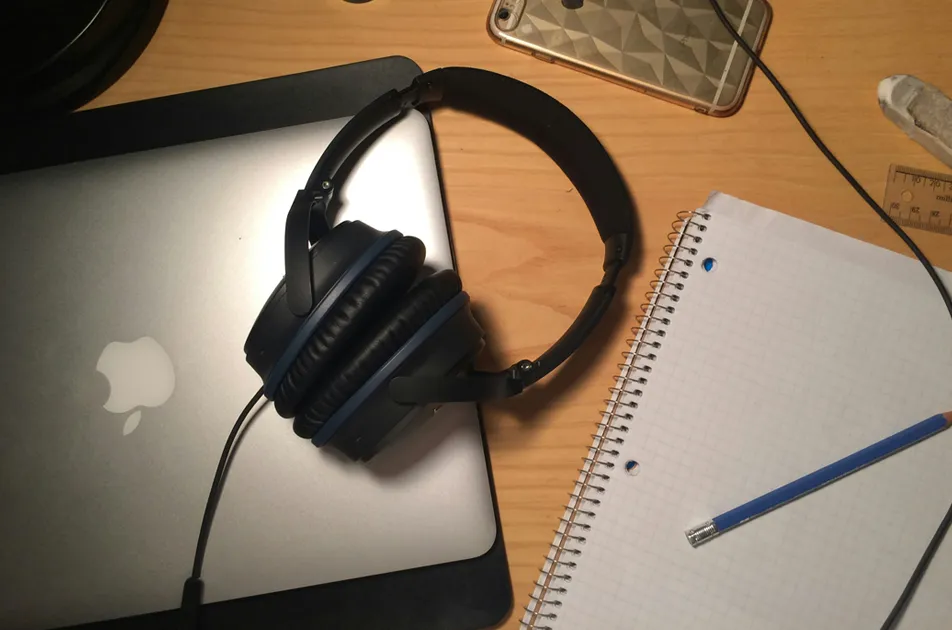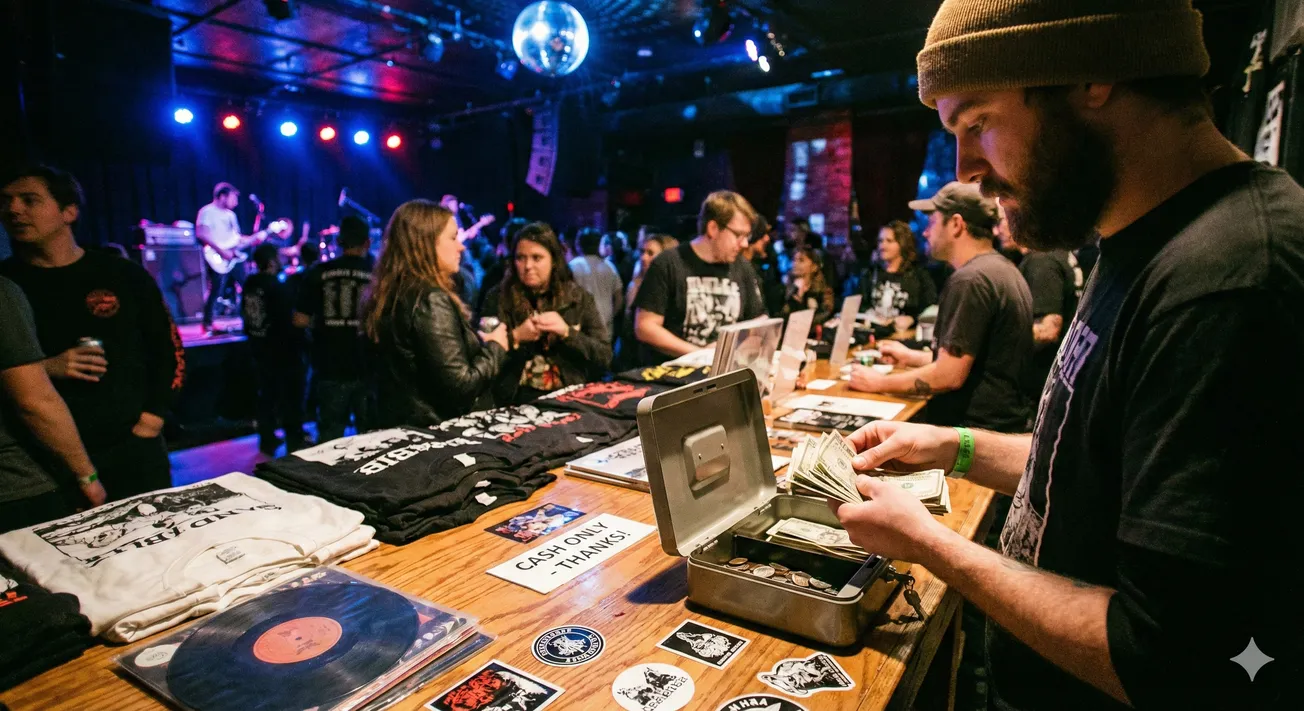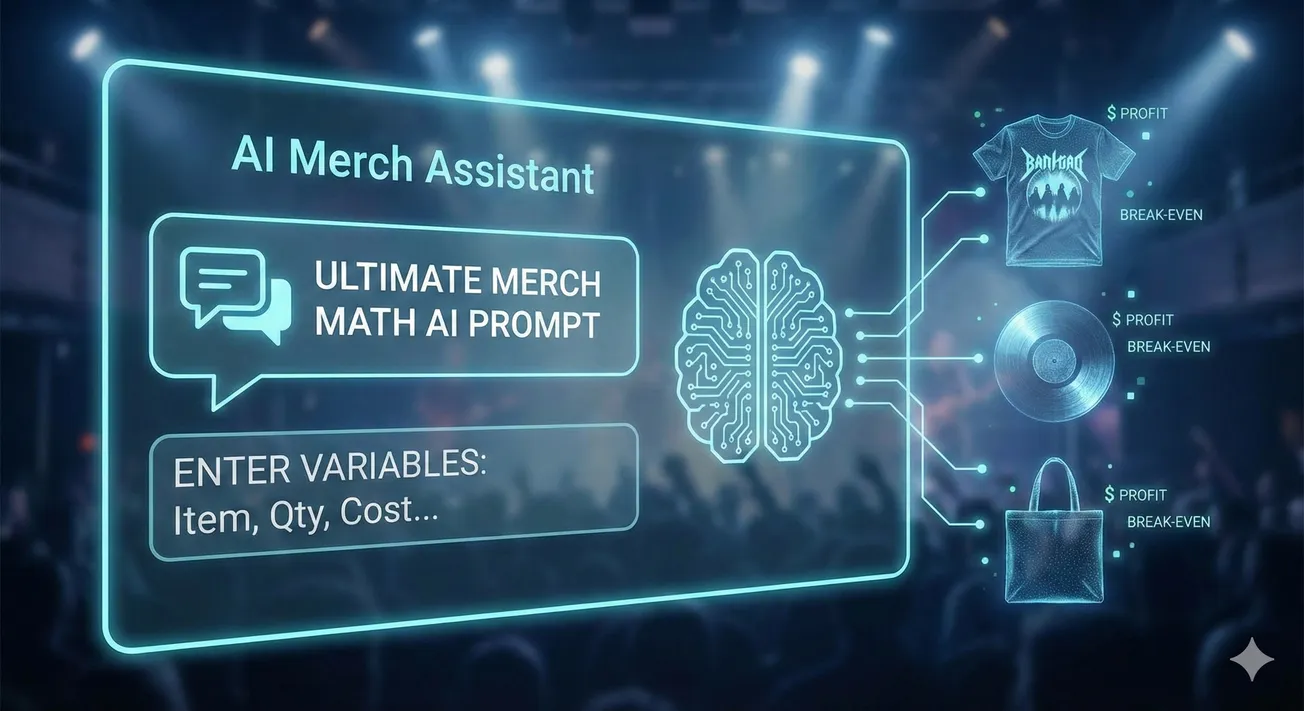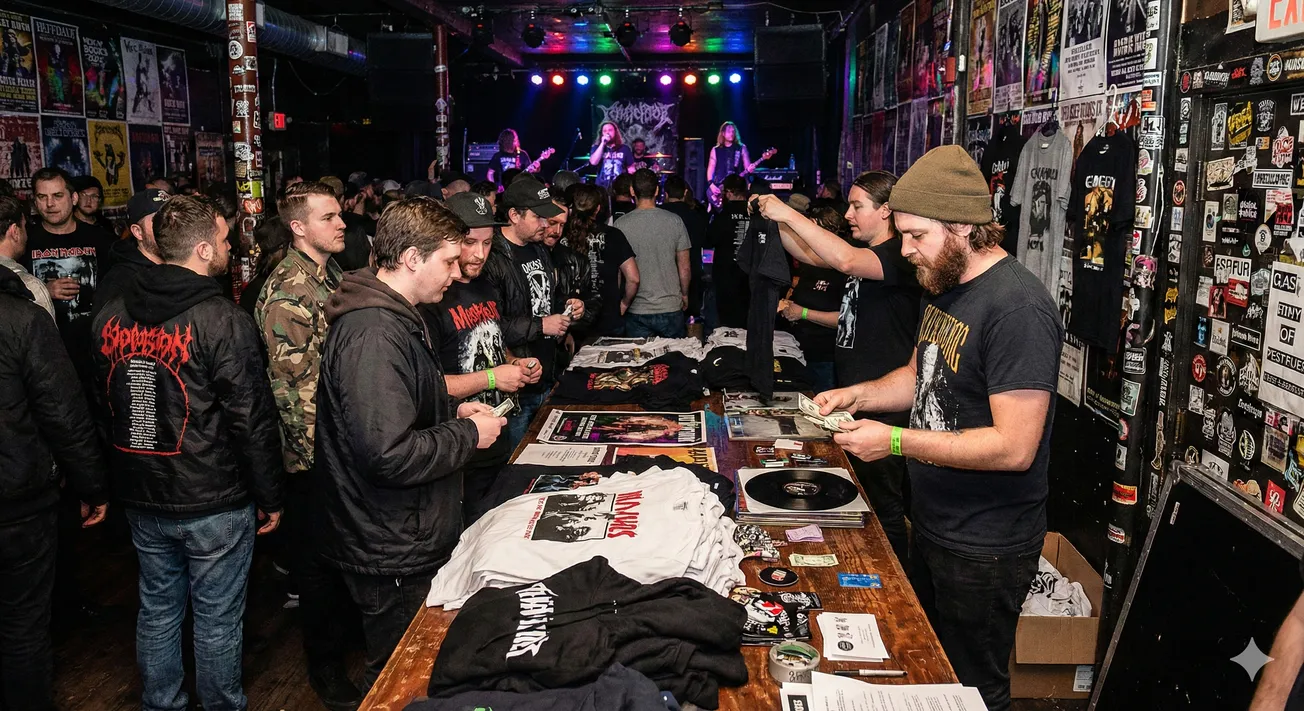Hailing from the Netherlands, Grammy-nominated musician and producer Nicolay is an
independent in every sense of the word. The Dutch producer first made
his mark in a transatlantic collaborative project with Phonte Coleman, who at
the time was ½ of the highly respected North Carolina hip-hop duo, Little
Brother. The two met on OkayPlayer message boards after Phonte asked to place
rhymes over one of Nicolay’s beats. The two have since gone on to form the
Grammy-nominated independent group, The Foreign Exchange. In this exclusive interview, Hypebot’s
Hisham Dahud discusses with Nicolay life as an independent artist, his views on
crowdfunding, streaming services and a whole lot more.
Hisham
Dahud: How has being a Grammy-nominated independent
artist affected your views on the artist / fan dynamic? What does this say
about the connection that musicians need to build with their fan bases?
Nicolay: I believe that the connection between
artist and fan has become the very center that everything revolves around. Any musician
should ask himself or herself this question:
“Why would anyone purchase my album when they have instant access, whether it
is legitimate or illegal, to literally all of the music past and present that their heart
desires?”
It mostly has to
do with that connection. Besides loving your music, a fan wants to care about
you and about what you represent, and feel that you care about them as well.
Just being on “American Idol” is no longer going to cut it. That’s why the up
and coming independent artists have a leg up. Major label artists that depend on huge marketing budgets to
promote their releases are now competing with a new generation of artists who
have literally grown up on Facebook, Twitter and YouTube and are reaching
people in totally new ways. If you follow current sales trends then you
know that more often than not, the indies are starting to come out on top.
Hisham: How do you
maintain your living so that you can focus on music full time?
Nicolay:
The first thing that I
learned is that in our lane, you can’t survive on royalties alone. It’s all of
our activities combined that float the boat: recording and releasing music,
doing remixes and features, performing live, DJing and hosting events, and
manufacturing and selling merchandise. As with running any business, it’s like
walking a tight rope sometimes. Not only do we need to eat, but we have people
working for and with us that need to eat as well. On top of that, we need to maintain
a steady cash flow to fund all of our releases and projects. And the
“Kickstarter” path that more and more artists go down, that is just not “us”.
So it doesn’t ever get easy but we have been making it work, not to mention
right through one of the worst recessions ever. That’s humbling.
On a personal level, I just feel
privileged that music and music alone has been my source of income for about
eight years now – going on a decade. I should throw a party around that time.
Hisham: As an
independent, what are some of the biggest challenges you face in
today’s music space?
Nicolay:
I think that the biggest
challenge that any musician faces today is the sheer abundance of music that is
being released. There are more players on the field now than ever before in the
history of recorded music, and the result is an oversaturated music market.
Firstly, the expansion of the internet
and social media on the one hand and the development of encoding formats like
MP3 on the other have made it easier than ever to reach people directly and
expose them to music without the aid of a traditional record label or distributor.
This is a blessing as well as a curse, because for the same reason it is now
also easier than ever to get lost in the shuffle and be completely overlooked –
especially if you consider that a growing percentage of all music is being
offered for free.
Secondly, the rapid advances in music
production technology have now made it possible for pretty much any aspiring
musician that owns a laptop to produce adequate sounding music recordings for a
fraction of the cost it would take to rent a studio and hire an engineer. It’s
easier than ever to participate.
Clearly, I am a good example of someone
who has benefitted greatly from some of these advances, and so I am not
complaining. Far from it; I think it is a very exciting time to be an
independent musician, as there are opportunities out there today that simply
weren’t there ten years ago when I first got started. But you have to be
realistic and acknowledge the negative implications of the progress.
People do buy less music; record stores are disappearing.
Hisham: How do you keep up with everything?
Nicolay: We manage to keep our
heads above the water because we don’t try to keep up. We basically decided to
play according to our own rules and nobody else’s. We put the music first and
we don’t compromise. Over the years, this approach and more importantly the
quality of our releases has gained us a worldwide fan base and their support
literally keeps the lights on. In a lot of ways we have placed ourselves
outside of the traditional music industry, partly due to the fact that a lot of
doors continue to stay closed for us, even after a Grammy nomination. Instead,
we have put our primary focus on continuing to build up our fan base from the
inside out, one person at a time. You won’t hear us on national radio or see us
on national television but by way of word-of-mouth alone more and more people
are discovering us every day.
Another important part of our strategy is
extensive touring. Once the “Authenticity Tour” wraps up for instance, we will
have visited over forty cities in the United States as well as four
cities in Europe. Extensive touring can still be a very effective tool in
breaking music to a larger audience.
Hisham: Part
of being independent is the wearing of two very different hats – Nicolay the
artist, and Nicolay the businessperson. How do you balance the two? How do you
remain creatively inspired while also focusing on your bottom line? Do the two
ever interfere?
Nicolay:
I consider myself an
artist first and foremost, and so the bottom line for me never changes – the
music comes first, and the business operates in service of the music. That
being said, I have always looked at the business side of the equation as
something you can approach creatively as well, and so I am quite comfortable
wearing either hat at this point.
There are only so many hours in a day, so
I keep the two sides in balance by not having much of a social life, by being
on the road a lot and by almost always being “on”. There are a million good
reasons to “do it yourself”, and I personally wouldn’t want to do it any other
way at this point, but if you want to play for keeps and make a difference, you
do pay a price and what you don’t pay for with money, you pay for with time.
At this point, we have assumed control
over virtually all aspects of the music making process, and we do most things
either in-house of in close collaboration with a few select partners. This
helps us to keep our overhead low, but it obviously can be a very
time-consuming method. We are responsible for other artists and their music as
well, and we want to do right by them. That is something that we don’t take
lightly at all.
Hisham:
What were some of the milestone moments in your career that brought you
to where you’re at today?
Nicolay:
An obvious first choice
for me would be connecting with Phonte on the Okayplayer message boards ca.
2001/2002, culminating in the release of our first album “Connected” in 2004.
When it comes to the development of my talents and my career, Phonte has been
of crucial importance – a true catalyst. We always push each other to go
further and to try harder, and even though we can sometimes have different
opinions on things, we share the same basic philosophies about music and the
industry. Outside of the fact that our musical partnership has proven to be
very fruitful, I greatly value his friendship. We have grown from an unlikely
match to an unstoppable force, and our chemistry has always been undeniable.
The release of “Connected” itself was a
watershed moment for me. There’s before “Connected” and after “Connected”, more
or less. The success of that album, even though it was on an underground level,
blew everything wide open for me. More specifically, it was that album that
made it possible for me to quit my job and I’ll never forget that how good that
felt.
Another milestone moment was the Artist
Visa to the United States that I was awarded in 2006. When the
“Connected” album proved successful in the States specifically and a lot of
opportunities started coming along, it became clear to me that if I wanted to
fully pursue my dreams and make a living playing music, I had to move across
the Atlantic. That was probably the most difficult decision I have made to
date as it essentially meant leaving behind my parents, brother and sister,
family and friends, but in my heart I knew that it was the right thing to do
and so I applied. It was a very rigorous and costly process, because they award
these artist visas only sporadically. I considered it a big honor when my work
was deemed worthy and I got the stamp of approval.
Being away from home doesn’t get easier
over time, but dreams don’t usually come true without some form of sacrifice.
The move across the Atlantic to the United States definitely ended up
putting my career into next gear.
Hisham: How did the Grammy nomination change things for you?
Nicolay: The Grammy nomination for “Daykeeper” was
definitely a milestone, partly because it was quite literally the last thing we
expected to happen. Phonte and I weren’t even members of
the Recording Academy at the time, but we submitted several
tracks from our second album “Leave It All Behind” to the Grammies anyway, not
thinking too much of it since we didn’t have the backing or leverage of a
traditional label. When the nominations were announced in December of 2009, it
was almost too good to be true that “Daykeeper” was nominated in the Best
Urban/Alternative Performance category. We hadn’t played the “game”, we hadn’t
done any of the smooching that they say is required for you to even be
considered. It was purely the power of our music and that song in particular
that made it through. People had no clue who we where, and a lot of them still
don’t. But there’s something special about that song, and they recognized it.
Of course, we didn’t win, but the
experience was one of a lifetime. People often ask us what the Grammy nomination
has done for us or how it has changed us, and I can honestly say that it hasn’t
really done or changed a whole lot. I won’t deny that it got us a lot of
attention and that it helped give “Leave It All Behind” some extra legs, but
the main thing that I got out of it personally was that our family, friends and
fans were really, really proud. It did really feel like a moment of validation.
For that reason alone I wouldn’t have missed it for the world. Plus, I do now
get to put “Grammy nominated music producer” behind my name and that’s nothing
to sniff at.
Hisham: Do you feel that streaming services like Spotify and Pandora are beneficial or detrimental for today’s indie musician? Do you feel your record sales would do better without these services? Or does the promotional and/or discovery value outweigh any potential dollar amount from record sales?
Nicolay: First and foremost, I am a proponent of streaming services because there is no real reason not to be, in my eyes. Artists like us can’t depend on national media and so the discovery value of things like streaming services and even file sharing definitely outweighs the disadvantages. That being said, people do have to understand that the income from streaming services will never be a substitute for the income that is being lost due to dwindling album sales. The whole concept of how to exploit streaming music is obviously still in its infancy stage and it’s impossible to predict how this model will develop and change over time, but you are literally talking about cents and dimes here. I would be highly surprised if those streaming services would ever make a real difference in terms of the artist’s bottom line.
Hisham: What do you hope to see occur in
the next few years that will allow musicians to hold more sustainable careers
while providing the world with their art? Will it ever “get better”?
Nicolay:
Not to be a downer, but
realistically speaking I don’t know that things will “get better”. It will
continue to that get harder and harder for any new artist to find and keep the
attention of an audience, let alone to build a sustainable career over a longer
period of time.
Something that I do hope to see happen in the next few years is the disappearance of
the whole crowdfunding thing that is blowing up right now. It almost feels as
though independent artists are flocking to the Kickstarters of the world because
they look at those platforms as the new “labels”, and the income that they
obtain using these sources as the new “advance”. If anyone feels that it’s the
best avenue for them to explore, then more power to them.
I personally have several
issues with the concept; the most important one being that I would not feel
right about charging someone for something that in most cases doesn’t even
yet exist. And even if we are talking about an album that in fact
has already been finished and the artist needs funds to release and promote it,
then why are they not reaching into their own pockets? It is not the
responsibility of your fans to facilitate your entire operation. And I am not
even going to get into the awkward situation that arises from a Kickstarter campaign
that does not succeed to bring in the intended amount.
The bottom line: I strongly believe that
in this new world order, an independent artist’s best chance is to stay 100%
independent, and that means independence from their audience as well.
Hisham: Any final
thoughts you’d like to share with readers?
Nicolay:
If you have made it this
far, I’d like to thank you sincerely for reading. To all of the independent and
aspiring artists that read this: if you feel that music is your calling then
keep going at all cost. I once read somewhere that genius consists of 10%
inspiration and 90% perspiration, so roll up your sleeves because you are not
going anywhere without some blood, sweat and tears. We are the perfect example
of what can happen if you do!
For more
information on Nicolay and The Foreign Exchange, head to www.TheForeignExchangeMusic.com. You can also stay up to date by following Nicolay and The Foreign Exhange on Twitter, as well as Nicolay's Facebook page.
—
Hisham Dahud is a Senior Analyst for Hypebot.com. Additionally, he is the head of Business Development for Fame House and an independent musician. Follow him on Twitter: @HishamDahud




